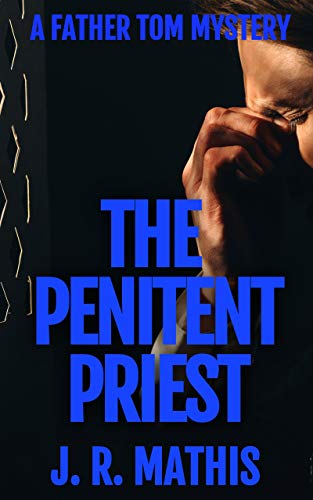
I suppose this will happen more and more as I grow old and fuzzy-brained, and the list of books I’ve read stretches longer than the unabridged dictionary. I picked up a set of the first three books in the Father Tom series for Kindle, only realizing toward the end of the first volume, The Penitent Priest, that I’d already read it. And reviewed it here. And forgotten it completely.
The Amazon page says this is a revised edition, so maybe the changes were extensive enough to mitigate my embarrassment. I note that my main concern with the book the first time through was the number of coincidences in the plot. I felt the same way this time, but it didn’t bother me as much. Perhaps that’s one of the problems they addressed in the revision.
In any case, Father Tom Greer is a Catholic priest in Pennsylvania. He came to his vocation late in life, following the murder of his wife in Myerton, the town where they lived. The crime has never been solved. Shortly thereafter Tom cut all local ties and left town, eventually attending seminary, getting ordained, and being put to work as an archivist.
But now (the book is narrated in the present tense, something I dislike on principle. Though I can’t say it actually decreased my enjoyment any) the archbishop has assigned him to fill in for the priest at St. Clare’s Church in Myerton. Then one day, in the confessional, someone tells Tom something that makes him believe they witnessed his wife’s murder, and might even be responsible. Then he gets a look at his late wife’s laptop, which a friend has been holding, and learns from her e-mails that she had a stalker. But when he tells the police detective in charge of the case, she says that’s not enough for her to take action on.
This encounter is complicated by the fact that the detective turns out to be a former girlfriend of Tom’s, one he nearly married before he met his wife.
What I liked about this book – the prose is excellent. The dialogue is natural, smart, and engaging. The characters are believable.
What I disliked (though not as much as on my first reading) — the number of coincidences in the plot. They interfered with my willing suspension of disbelief.
Still, considering that this is a “clean” novel, without profanity or sex and with excellent moral values, I was very impressed with The Penitent Priest. Our hyper-Protestant readers may not consider a Catholic novel a “Christian” work, but I think most any Christian can read this book and appreciate its values and even (for the most part) its theology.
So I recommend it, all things considered. I enjoyed reading The Penitent Priest. I think the authors have talent and good instincts.

